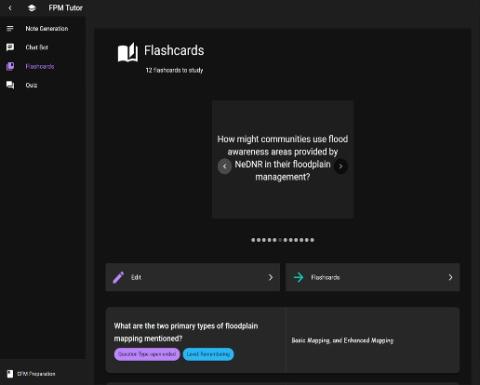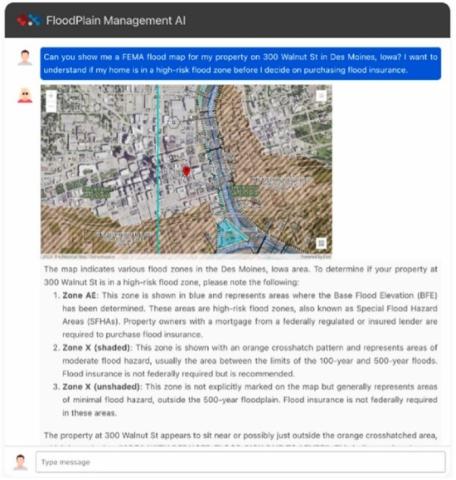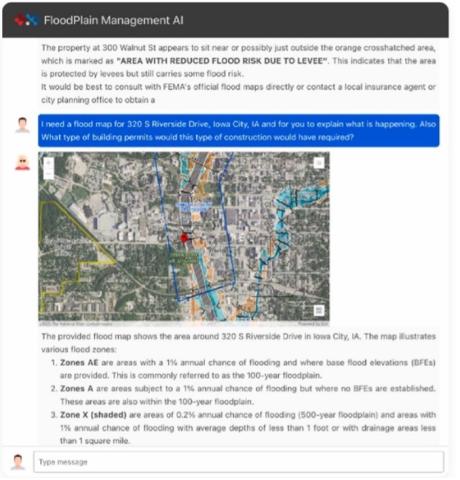Tulane HydroInformatics Lab Pioneers in AI for Flood Resilience and Water Management

Tulane University’s HydroInformatics Lab, under the leadership of Professor Ibrahim Demir—the Michael A. Fitts Presidential Chair in Environmental Informatics and Artificial Intelligence—is at the forefront of using artificial intelligence to address the world’s most urgent water challenges. By integrating expertise in AI, environmental science, and engineering, the lab is introducing pioneering solutions to strengthen flood resilience, optimize decision-making, and train tomorrow’s workforce.
At the core of the lab’s innovative research is the development of HydroLLM-Benchmark, the first comprehensive dataset specifically designed to evaluate and advance large language models (LLMs) for hydrology-specific applications. Released by Kizilkaya and colleagues, this benchmark provides an essential resource for researchers and developers, ensuring robust, accurate, and context-aware AI systems for scientific research, policy support, and operational water management. HydroLLM-Benchmark serves as a foundational tool, accelerating the development of high-performing LLMs tailored for environmental science.
Recognizing that resilient communities depend on a skilled workforce, the HydroInformatics Lab next turned its focus to education. In a significant advancement published in 2025 by Sajja and team, the lab launched an AI-powered, adaptive educational platform designed to support floodplain manager certification. The platform leverages dynamic quizzes, interactive modules, and real-time feedback to personalize learning, making certification more accessible and helping professionals navigate the growing complexities of water management.
Building on these advances, the team developed an AI-driven assistant for operational floodplain manager support—detailed in the work of Pursnani and colleagues. This cutting-edge tool integrates multimodal data, FEMA flood maps, regulations, and local policies within an intuitive interface, offering real-time, location-specific guidance directly to managers on the ground. The use of conversational AI ensures that crucial information is available at the moment of need, enhancing the speed and accuracy of decision-making during flood events.
To further strengthen disaster preparedness and recovery, the lab has also introduced an AI-driven, multi-agent decision-support framework—authored by Kadiyala and collaborators. This sophisticated system simulates community-driven hazard mitigation planning by using thousands of AI agents, each representing different stakeholder interests. By modeling real-world decision-making and optimizing strategies within realistic constraints, this tool empowers agencies and communities to make informed, collaborative, and effective disaster planning choices.
Through these groundbreaking contributions, Tulane’s HydroInformatics Lab is positioning the university and the School of Science and Engineering as global leaders in AI applications for environmental resilience. From foundational datasets that advance LLMs, to workforce development platforms, operational field tools, and innovative planning frameworks, the lab’s research is delivering transformative impact—equipping communities worldwide to adapt to increasing water-related risks and shaping the future of water management.
To learn more about Tulane University’s HydroInformatics Lab and its AI-driven solutions for environmental science, please reach out to Dr. Ibrahim Demir (idemir@tulane.edu).
References
Kadiyala, L., Sajja, R., Sermet, Y., Muste, M., & Demir, I. (2025). AI-driven decision-making for water resource planning and hazard mitigation using automated multi-agents. Journal of Hydroinformatics, jh2025042. https://doi.org/10.2166/hydro.2025.042
Kizilkaya, D., Sajja, R., Sermet, Y., & Demir, I. (2025). Toward HydroLLM: a benchmark dataset for hydrology-specific knowledge assessment for large language models. Environmental Data Science, 4, e31.
Pursnani, V., Sermet, Y., & Demir, I. (2025). A conversational intelligent assistant for enhanced operational support in floodplain management with multimodal data. International Journal of Disaster Risk Reduction, 122, 105422.
Sajja, R., Pursnani, V., Sermet, Y., & Demir, I. (2025). AI-assisted educational framework for floodplain manager certification: Enhancing vocational education and training through personalized learning. IEEE Access, 13, 42401–42413. https://doi.org/10.1109/ACCESS.2025.3548591



